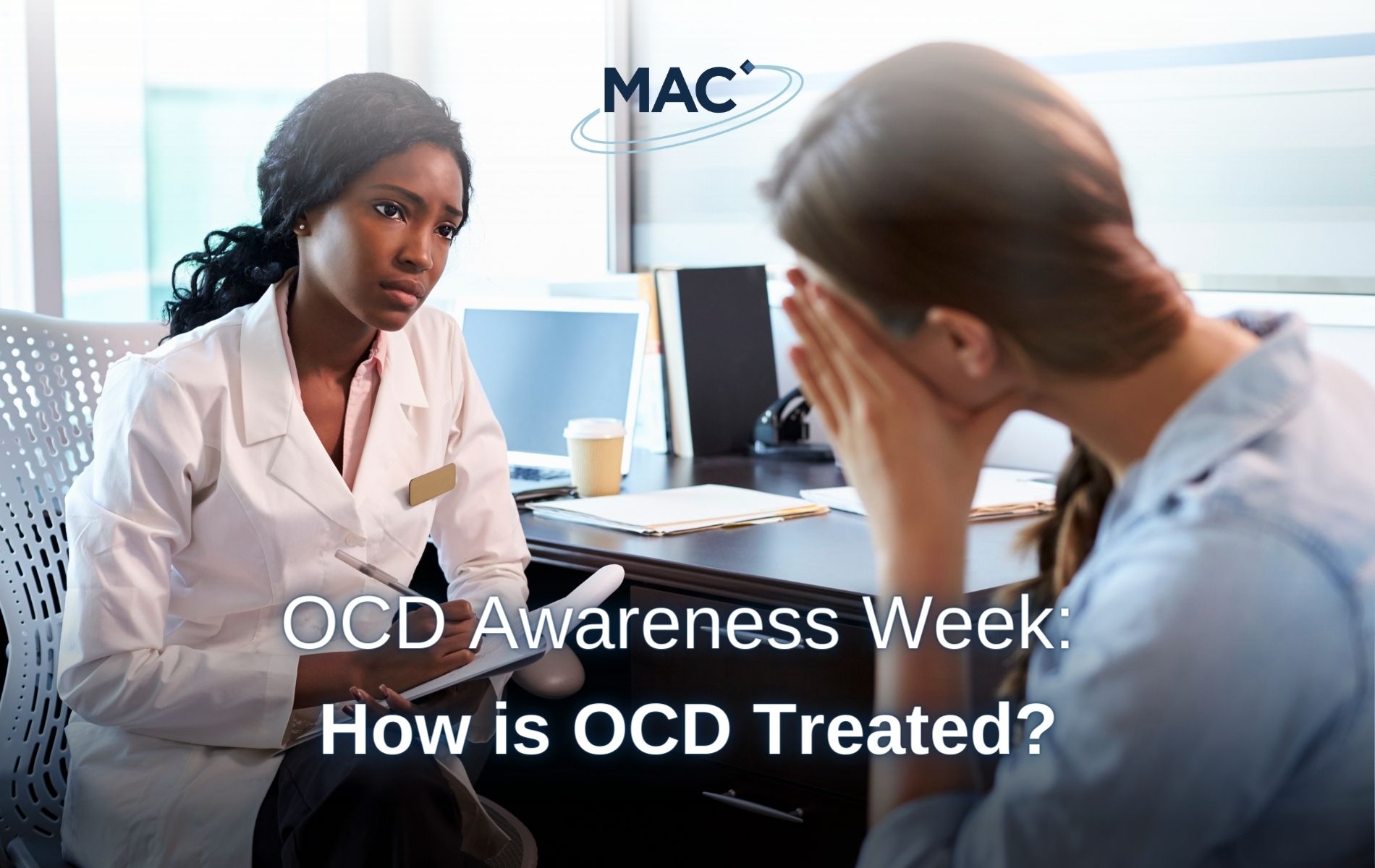How do medical professionals treat a complex mental health condition like Obsessive Compulsive Disorder (OCD)? For this year’s OCD Awareness Week, we want to highlight the everyday experiences of living with OCD, including how it is currently treated and the routes the healthcare industry is taking to improve treatments.
OCD is the sixth most common mental health disorder in England, impacting 1 in every 100 people1. It causes intrusive and often distressing thoughts, and repetitive behaviours or mental actions (known as compulsions), which are performed as a means of temporarily reducing the anxiety that intrusive thoughts can cause.
There are currently many ways in which OCD is treated:
Cognitive Behavioural Therapy (CBT) for OCD
CBT, particularly a subtype called Exposure and Response Prevention (ERP), is one of the most common therapies for OCD. It involves exposing individuals to their obsessions and preventing them from performing compulsions, ultimately helping them learn to manage their symptoms.
This form of therapy, however, is not always a viable option for those living with OCD. Some studies have found that patients prefer to take medication for their condition because they are hesitant of the psychological challenges of CBT such as sharing their intrusive thoughts that often cause feelings of guilt and shame. Many may encounter difficulties in accessing a therapist trained in CBT and there is also the expense involved in undergoing this therapy2, particularly private therapy which many resort to in order to avoid waiting times on the NHS. 1 in 4 people referred for psychological therapies have to wait longer than 6 weeks to start their treatment, and 1 in 20 will wait more than 18 weeks3.
Medication for OCD
Antidepressants such as selective serotonin reuptake inhibitors (SSRIs), Clomipramine (a tricyclic antidepressant) and some Serotonin-Norepinephrine Reuptake Inhibitors (SNRIs) are commonly prescribed in the UK, to help alleviate obsessive thoughts and reduce the need for compulsions in OCD.
Around half of OCD patients who are treated with antidepressants, however, won’t receive adequate benefit from them4. Taking antidepressants might also incur unwanted side effects such as sexual dysfunction and sleep disturbance5.
Combination Therapy for OCD
Some individuals benefit from a combination of psychological therapy such as CBT and medication, which can provide a comprehensive approach to managing OCD symptoms.
Lifestyle and Self-Care
Practices like mindfulness, stress management, and regular exercise can complement formal treatment approaches and help individuals manage their OCD more effectively. Some studies have shown that exercise is associated with a large reduction of OCD symptoms6.
Further treatment options are on the horizon: clinical trials hold the potential to help revolutionise these. These trials involve the systematic evaluation of new therapies or interventions to determine their safety and effectiveness.
Doctors and researchers at MAC are currently exploring potential new medications that may provide more effective and better-tolerated treatment options for OCD.
If you are currently living with OCD or OCD symptoms and feel your current antidepressant medication is not fully helping, you could be eligible for MAC Clinical Research’s latest OCD clinical trial.
The trial is investigating a medication that is thought to target a different signalling pathway in the brain to current OCD treatments, which may help to control obsessive or compulsive behaviours. With your participation, you may be able to contribute to scientific research, which could lead to a new medicine to help people living with OCD.
The trial is taking place at MAC clinics in Lancashire, Greater Manchester, Merseyside, South Staffordshire, South Yorkshire, Teesside, and West Yorkshire.
To be eligible, you must:
- Be aged between 18 and 65 years old.
- Have had OCD or OCD symptoms for at least 1 year that is affecting your everyday life.
- Feel that your current OCD medication (antidepressant) is not fully working.
Eligible participants may receive up to £490 for their time and commitment to the study, along with reasonable travel costs. If the treatment works, you may be allowed to continue taking it (known as an open-label extension) for up to 48 weeks. For more information on how you can get involved, visit our OCD Research page.
1 Mind – Mental health facts and statistics
2 Psychology Research and Behaviour Management – Cognitive-behavioural therapy for obsessive–compulsive disorder: access to treatment, prediction of long-term outcome with neuroimaging
3 NHS England – Service standards
4 Depression and Anxiety – Long‐term outcome in adults with obsessive‐compulsive disorder
5 Primary Care Companion to The Journal of Clinical Psychiatry – SSRI Antidepressant Medications: Adverse Effects and Tolerability
6 International Journal of Psychiatry in Clinical Practice – Effects of exercise on obsessive-compulsive disorder symptoms: a systematic review and meta-analysis






